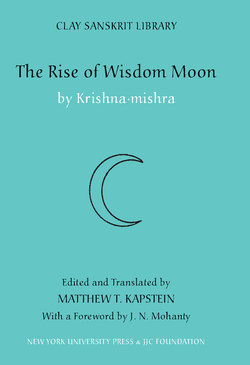Читать книгу The Rise of Wisdom Moon - Krishna mishra - Страница 17
На сайте Литреса книга снята с продажи.
ОглавлениеFOREWORD
This new translation of Krishna·mishra’s “The Rise of Wisdom Moon” will be, I believe, welcomed by all lovers of Sanskrit literature and especially by admirers of this marvelous drama. Matthew Kapstein brings out the work’s literary qualities in a manner the earlier translators could not, all the more for the modern literary sensibility. Some of his renderings of Sanskrit proper names are particularly ingenious.
“The Rise of Wisdom Moon” belongs to a literary genre that requires from readers both philosophical knowledge and literary sensibility in order to be able to appreciate it. The work cannot be reduced to a merely philosophical treatise, so compelling is its literary and dramatic effect. The cast of characters, each representing a power of sensible, erotic, intellectual and spiritual life, is at first confounding, but soon, as one identifies each power’s characteristic, familiar role, the entire story of conflict, struggle, and eventual resolution coheres in its depiction of man’s inner life, and is comparable in this respect to Hegel’s “Phenomenology of Spirit.” For while Hegel’s is a philosophical treatise cast, rather severely, as a dramatization, Krishna·mishra’s is ostensibly a drama meant to be staged, but is also explicitly philosophical.
Matthew Kapstein highlights, as contrasted with earlier translators and writers on the text, its literary quality and wishes to underplay its philosophical nature. The irony lies precisely here, in the work’s literary style. This irony ________
xv
